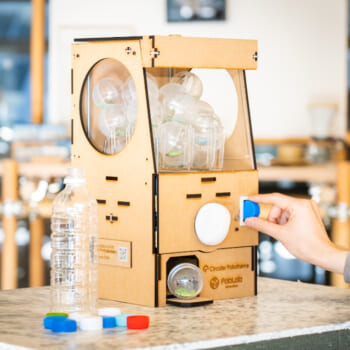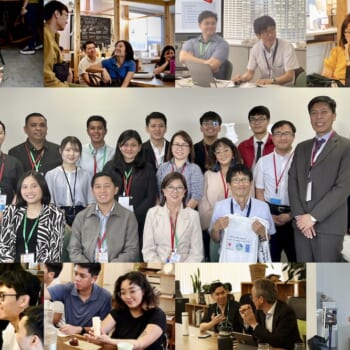![Vol.1: UNDP Philippines Delegates’ journey into Japan’s Circular Economy [EVENT REPORT]](https://circular.yokohama/wp-content/uploads/2023/08/undp-philippine_japantour_2023_circulareconomy_71.jpg)
Vol.1: UNDP Philippines Delegates’ journey into Japan’s Circular Economy [EVENT REPORT]
- On 2023/9/26
Circular Yokohama welcomed the “UNDP PHILIPPINES – JAPAN LEARNING EXCHANGE ON CIRCULAR ECONOMY FOR LOCAL GOVERNMENTS.” We hosted 14 delegates and 2 UNDP members from the Philippines between June 25 and 30, 2023.
This article reports on the first half of the five-day journey in Yokohama City.
The tour was co-hosted by Circular Yokohama and Zenbird.
About “UNDP PHILIPPINES – JAPAN LEARNING EXCHANGE ON CIRCULAR ECONOMY FOR LOCAL GOVERNMENTS”
This tour is one of the programs of the ACE Project organized by UNDP Philippines. ACE project aims to support the Nationally Determined Contribution (NDC) of the Philippines through enabling and accelerating the country’s transition to the circular economy for two years, from 2022 to 2024.
Ace project is part of the UNDP Global Project “Climate Promise,” where the Philippines is among the participating countries.
The Japan learning exchange included 14 delegates from the local governments, five key cities, Manila, Quezon, Caloocan, and Pasig, and one private company, as well as two members of the UNDP Philippines team. Each of them is in charge of promoting sustainability and circular economy in their positions. This tour took them to the immersive experience of learning resource recycling and waste in Tokyo and Yokohama, the essential areas of Japan’s circular economy.
Index
Day 1: Exploring the current effort of waste separation and disposal in Yokohama, led by the City government
History of Japan’s prominent local district, Yokohama
We first welcomed the Philippines’ delegates with the Yokohama City International Affairs Bureau at Galerio, the base of the Public-Private partnerships between Yokohama and developing countries.
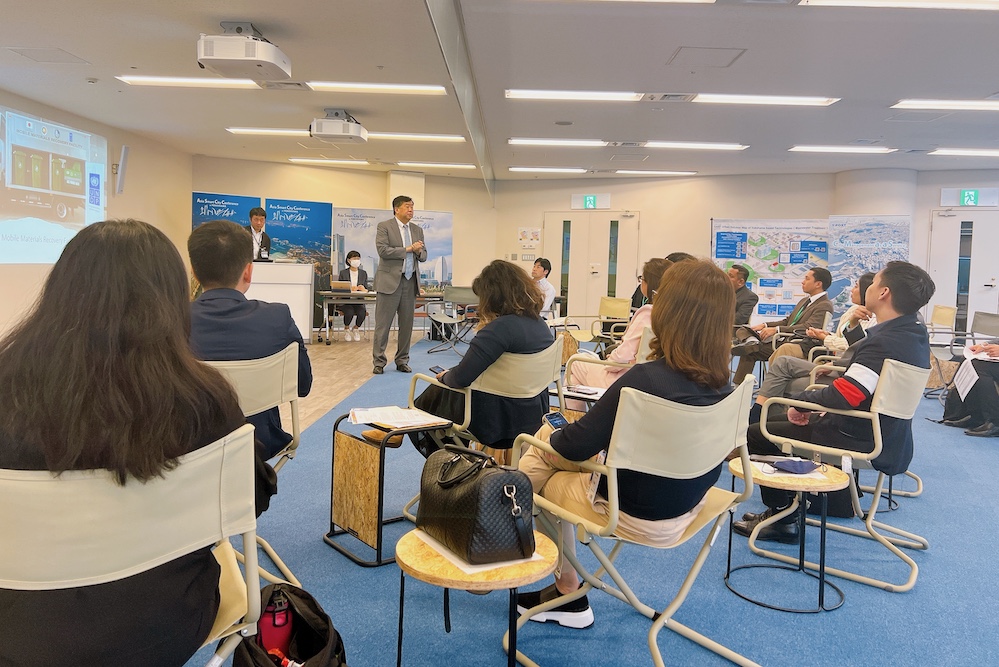
Courtesy call with the Yokohama City International Affairs Bureau
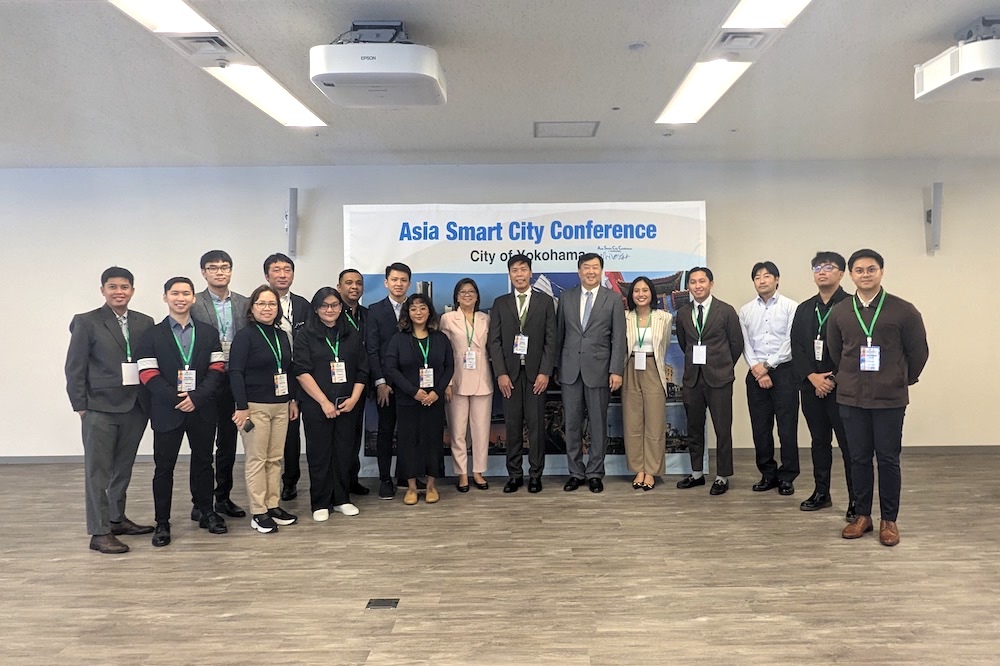
Afterward, the party visited the observatory of the Yokohama Landmark Tower. Yokohama City office was eager to share its cultural background and the development of the city. The delegates learned Yokohama’s fundamental history with the panoramic view from the third-tallest building and fifth-tallest structure in Japan.
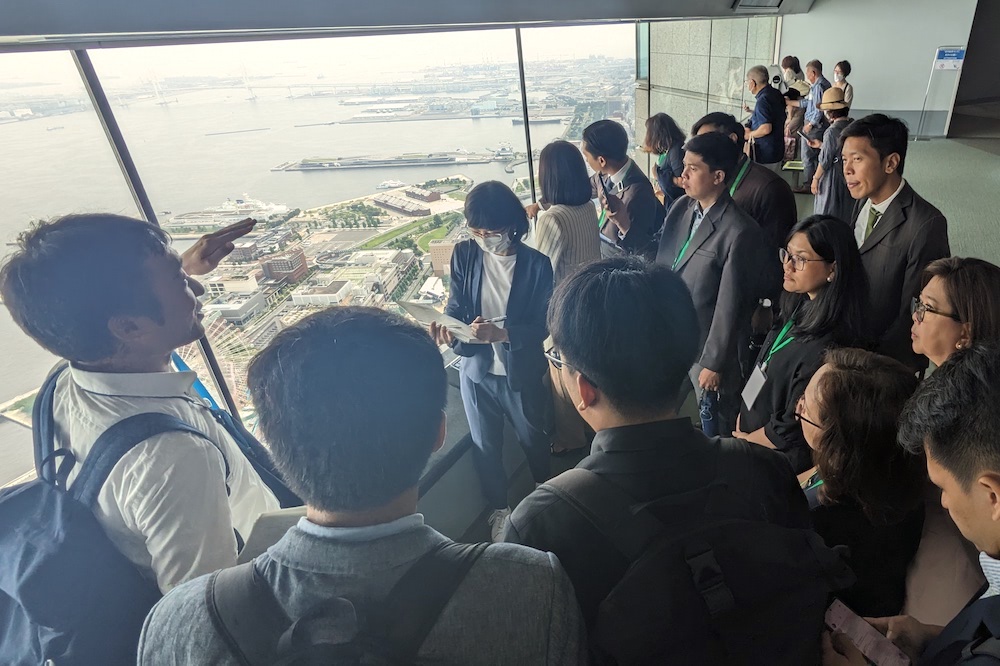
At the Yokohama Landmark Tower observatory
Waste of cans and bottles taught us how “Many a little makes a mickle”
After the courtesy call to the Yokohama City government, the delegates visited two facilities in Tsurumi Ward.
The first stop was to the Yokohama City Resources and Waste Recycling Bureau’s recycling plant, where the waste of cans, bottles, and PET bottles from households are sorted.
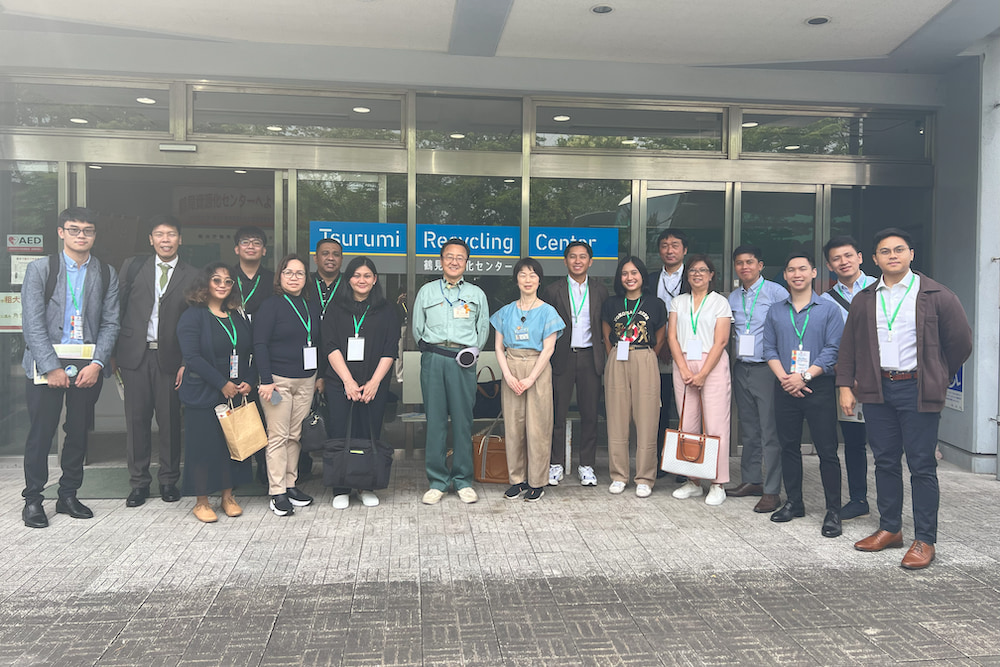
the Yokohama City Resources and Waste Recycling Bureau’s recycling plant
We saw people manually sorting out a full of cans and bottles on a conveyor belt.
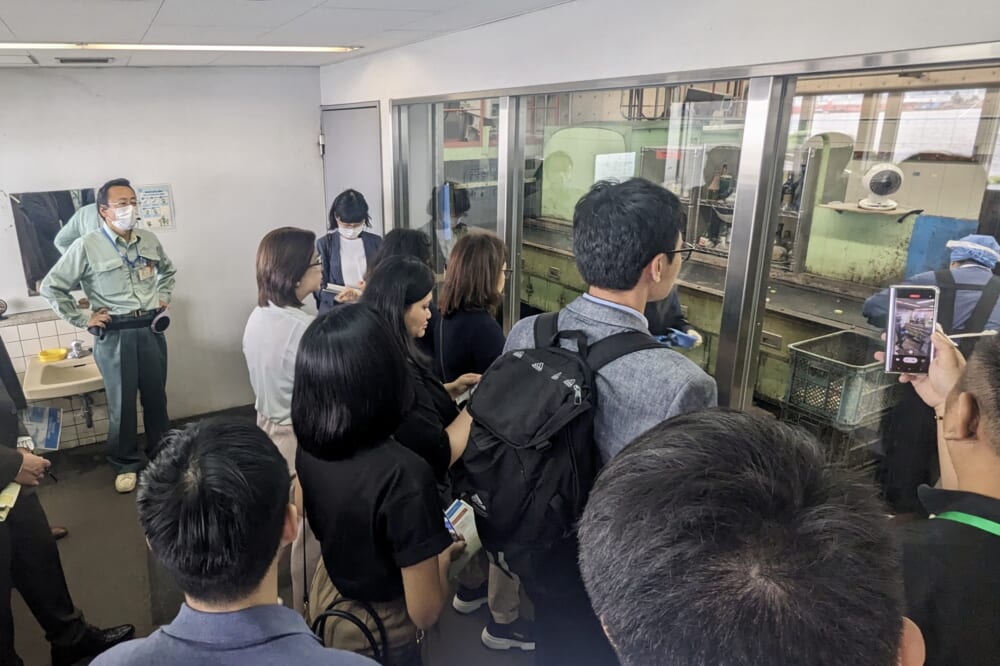
A scene at a conveyor belt for collected cans and bottles
Later, we found a large mass of PET bottles with labels and caps still attached, which should be removed before disposal. Currently, the PET bottle recycling loop is inefficient because they are disposed of incorrectly.
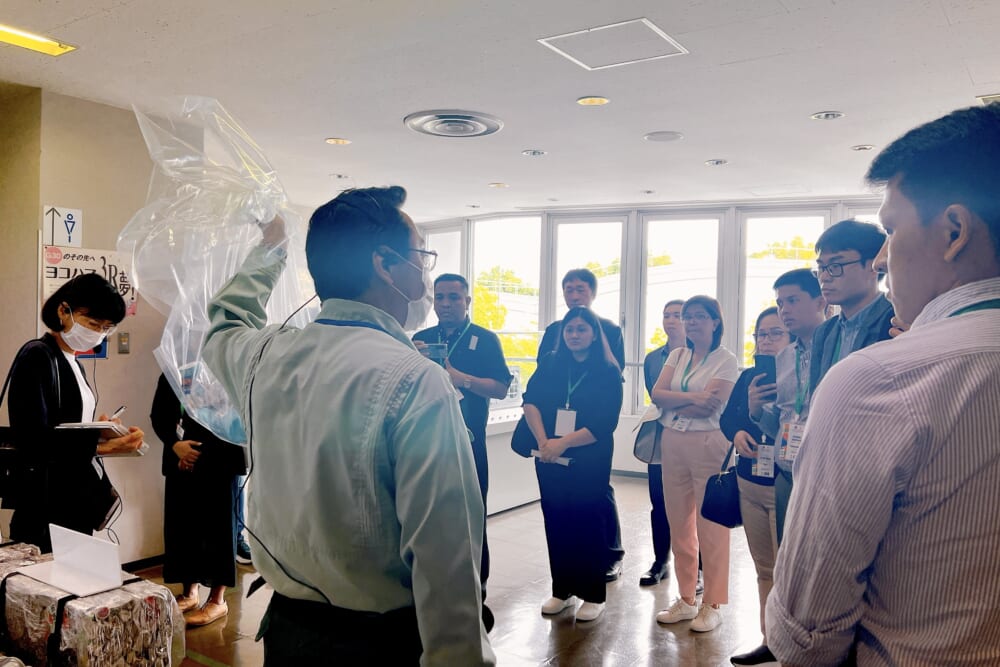
a scene from the lecture
We understood the importance of sorting the garbage out before disposing of things. Many a little makes a mickle, and our small practices on a daily basis can change the whole circumstance.
Circulation of commercial food waste based on biomass fuel production
The second stop is to a private facility, “J-Bio Food Recycling Co. Ltd,” and we inspected the commercial food waste recycling system.
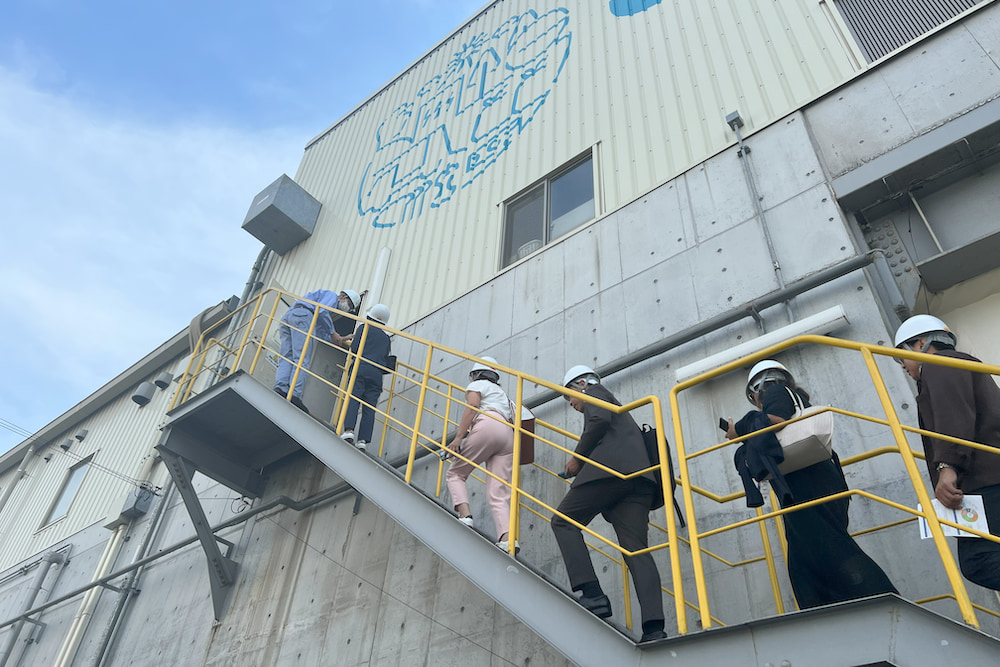
J-Bio Food Recycling Co. Ltd
J-Bio took all kinds of food waste from food and beverage manufacturing companies and converted them into biogas with microorganisms. Incinerating biogas is generally regarded as more eco-friendly than incinerating food waste directly in terms of COs emission.
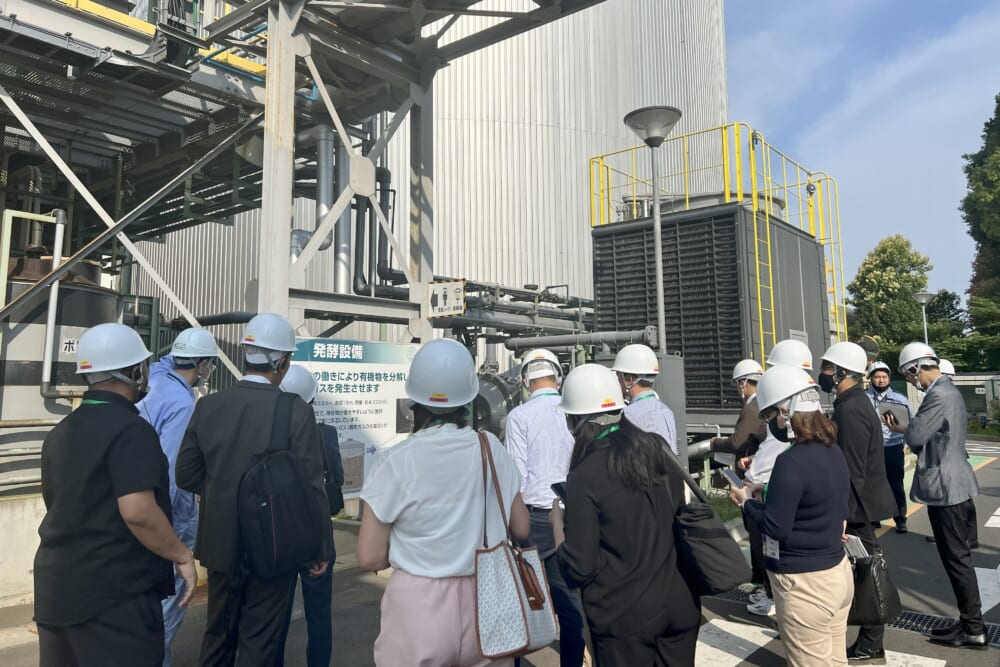
a scene from the facility tour
The food waste generated from unsold or expired food is not directly incinerated but converted into biogas through methane fermentation, which is then incinerated to generate electricity.
Much of the food waste at J-Bio was expired and discarded by convenience stores, shopping malls, and food manufacturers. Especially the amount of seasonal foods such as ice cream and chocolates was massive.
Although the types and amounts of food waste vary by season, the food waste fed to microorganisms needs to be sufficiently adjusted to keep the nutritional balance of the microorganisms stable. In this way, methane can be fermented efficiently.
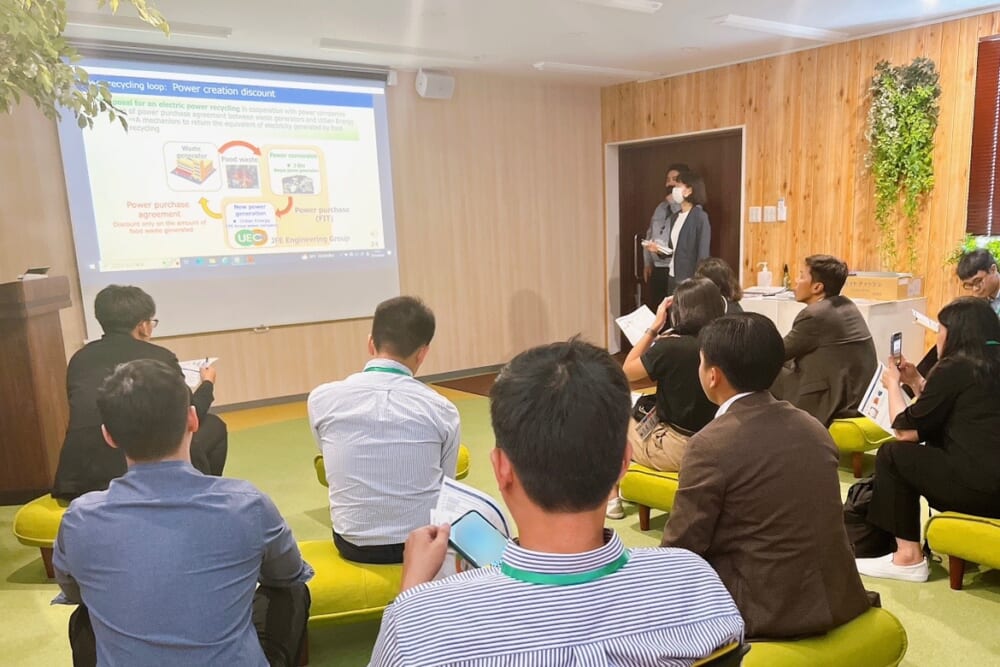
a scene from the lecture
Touching diverse ideas of circular products at YOKOHAMA CIRCULAR DESIGN MUSEUM
The last stop on the first day was the qlaytion gallery where Circular Yokohama’s base is.
Currently, we are operating the “YOKOHAMA CIRCULAR DESIGN MUSEUM, which showcases a wide variety of products based on the circular economy concept.
We invited the exhibitors of the museum as local circular players. The Philippine delegates enjoyed interacting with them and hearing unique ideas, achievements, and difficulties.
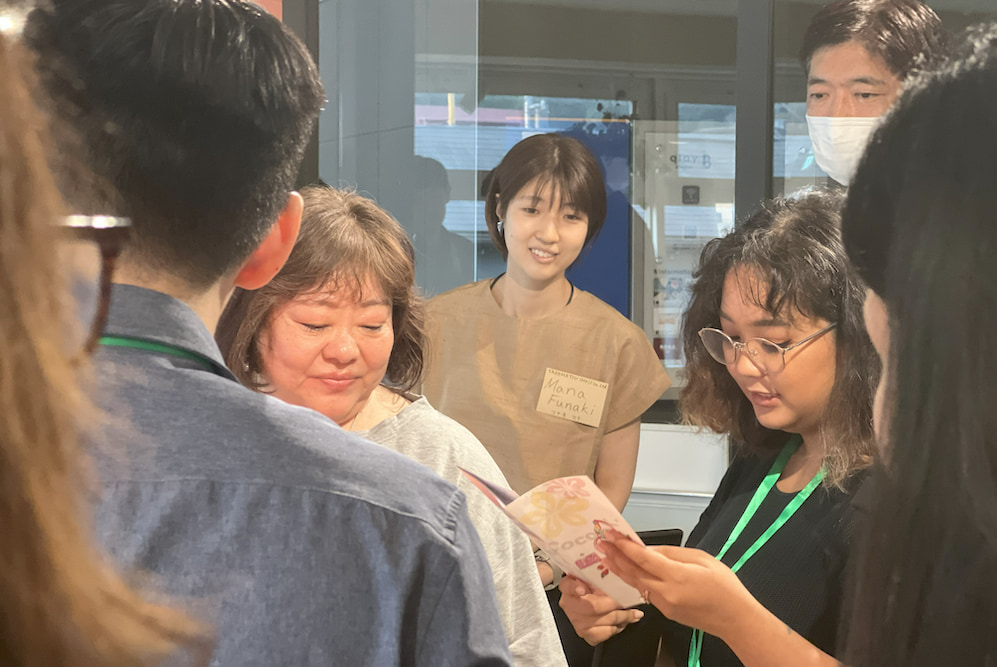
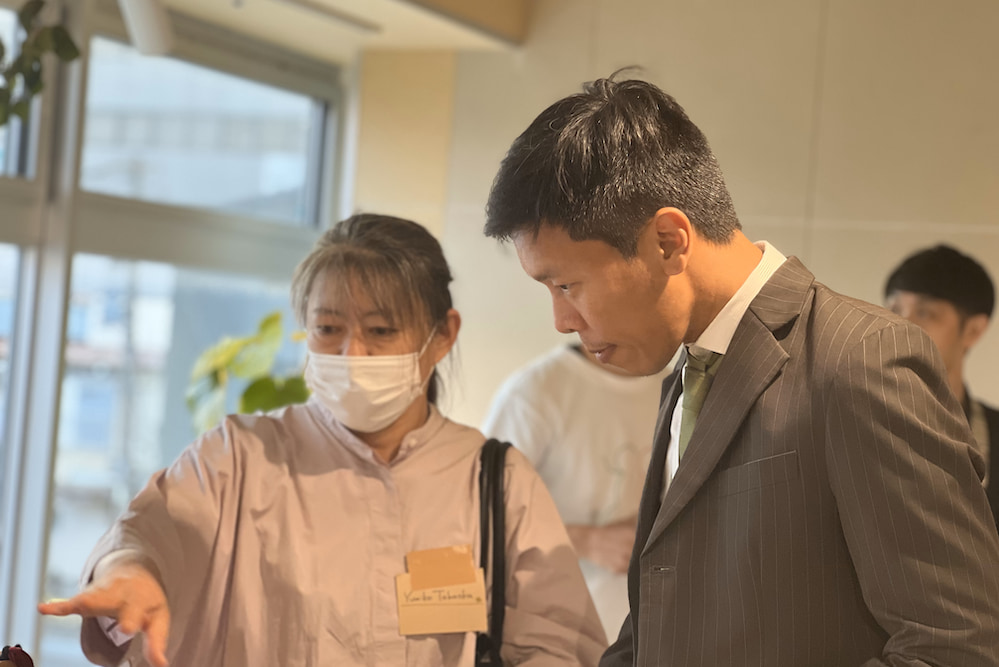
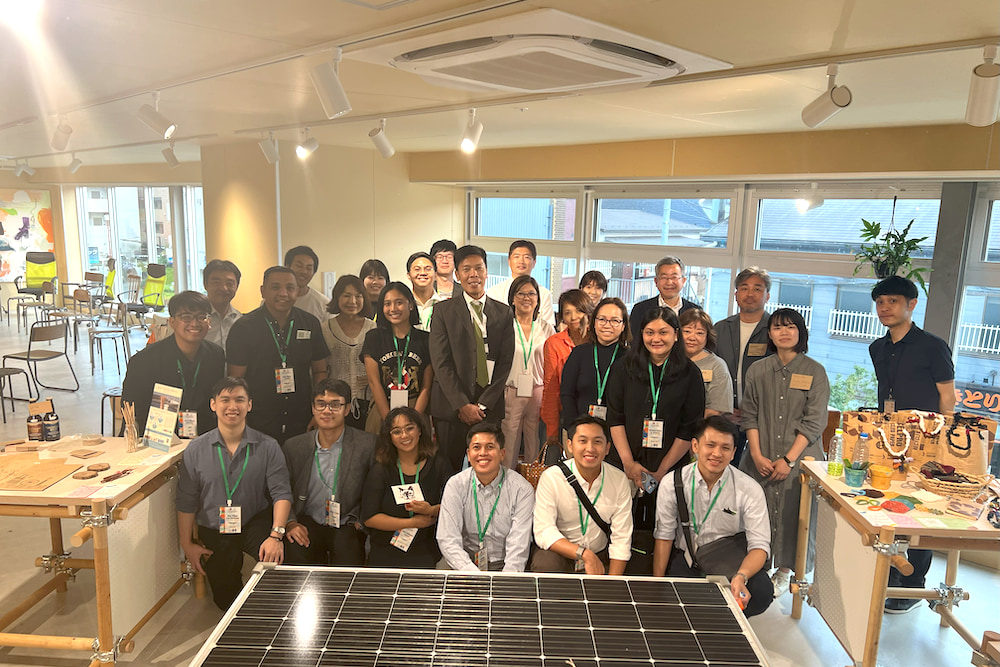
at qlaytion gallery
Day 2: Learn the current circumstances of the circular economy from the business perspectives
YOKOHAMA CITY CIRCULAR ECONOMY SYMPOSIUM
The second day had one of the primary events of this tour, the YOKOHAMA CITY CIRCULAR ECONOMY SYMPOSIUM.
The symposium consisted of presentations and panel discussions where the Philippine delegates and Japanese business sectors exchanged their efforts.
The venue was “Galerio” in the Y-PORT Center Office.
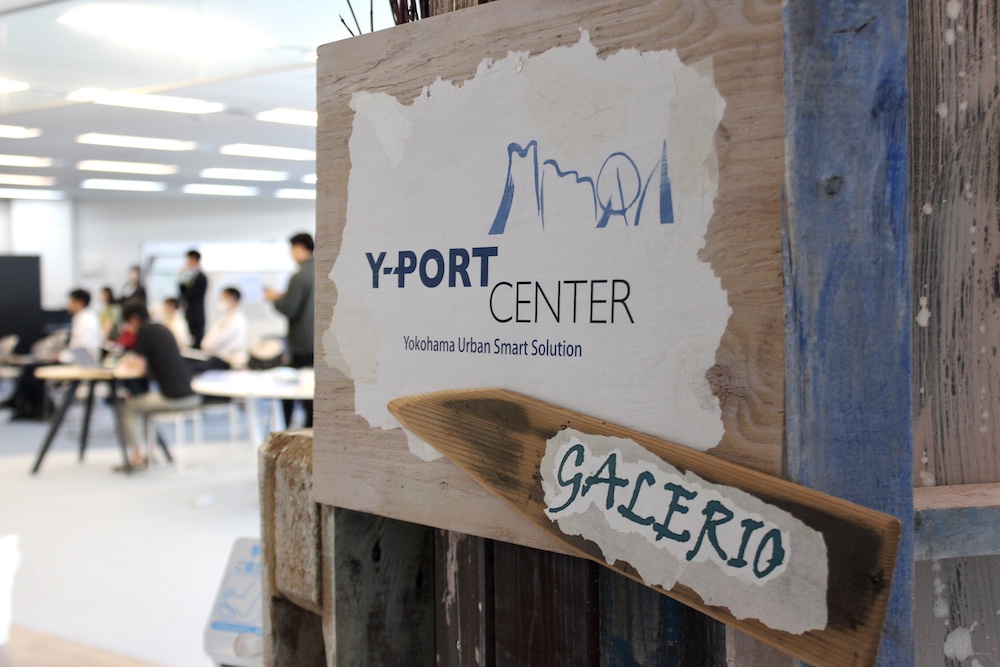
Y-PORT Center “Galerio”
Galerio is owned by the Yokohama City International Affairs Bureau and YOKOHAMA URBAN SOLUTION ALLIANCE (YUSA), which aims to create infrastructure business opportunities overseas by solving urban issues.
More than 50 guests gathered, including the Philippine delegation, companies, and government officials involved in resource recycling in and around Yokohama.
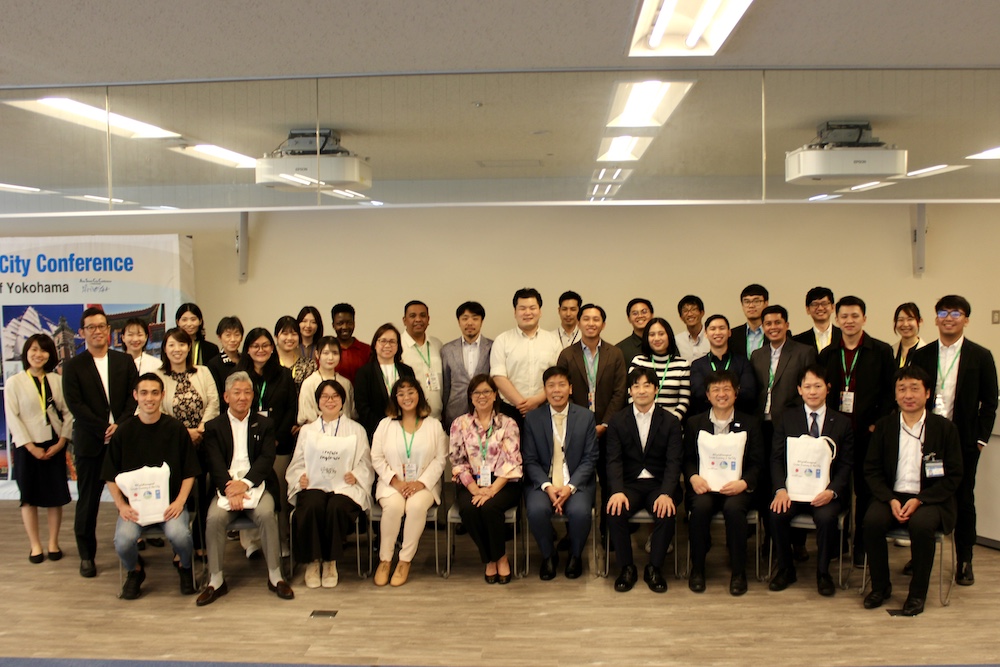
at the YOKOHAMA CITY CIRCULAR ECONOMY SYMPOSIUM
Part 1: Circular Economy in the Philippines and Japan
Presenter
-Mr. Norio Tomioka (Yokohama City International Affairs Bureau)
-Mr. Jello D. Ortega (Climate Change Mainstreaming Integration Division of the DENR Climate Change Service in the Philippines)
-Mr. Yutaka Mikami (YUSA / Yokohama City International Affairs Bureau)
-Mr. Norio Ishida (GUUN Co., Ltd)
-Mr. Yasufumi Kubota (Nakano & Co., Ltd.)
-Mr. Kiyotaka Kurihara (The Yokohama city recycle business cooperative)
-Mr. Ryosuke Arai (RECOTECH Co., Ltd.)
-Ms. Fumi Muzushima (Pacific Convention Plaza Yokohama)
-Mr. Atty. Diego Luis S. Santiago (Pasig City)
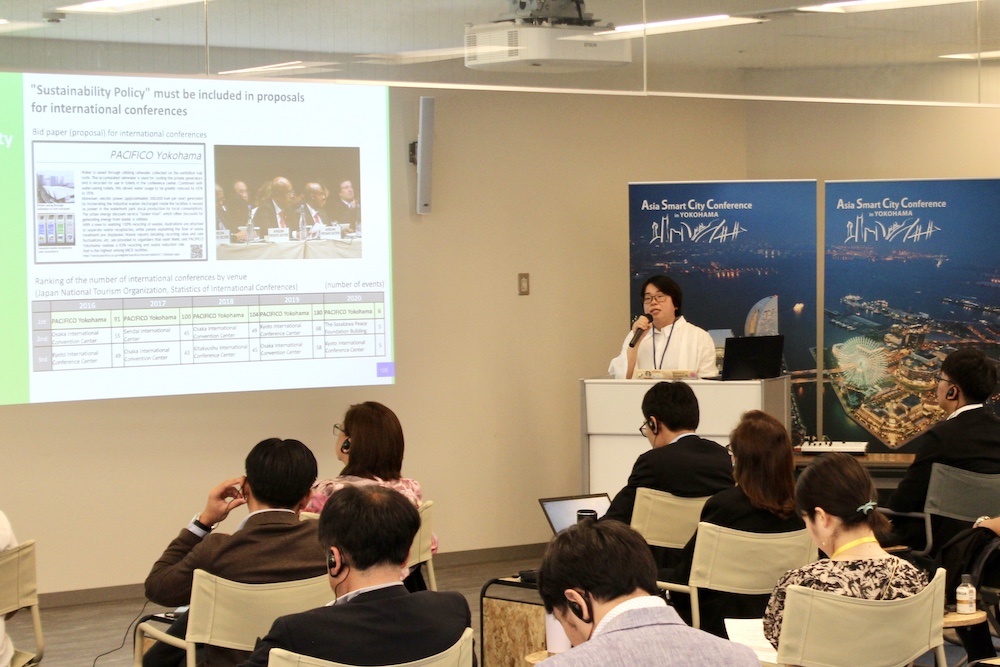
a scene from the presentations
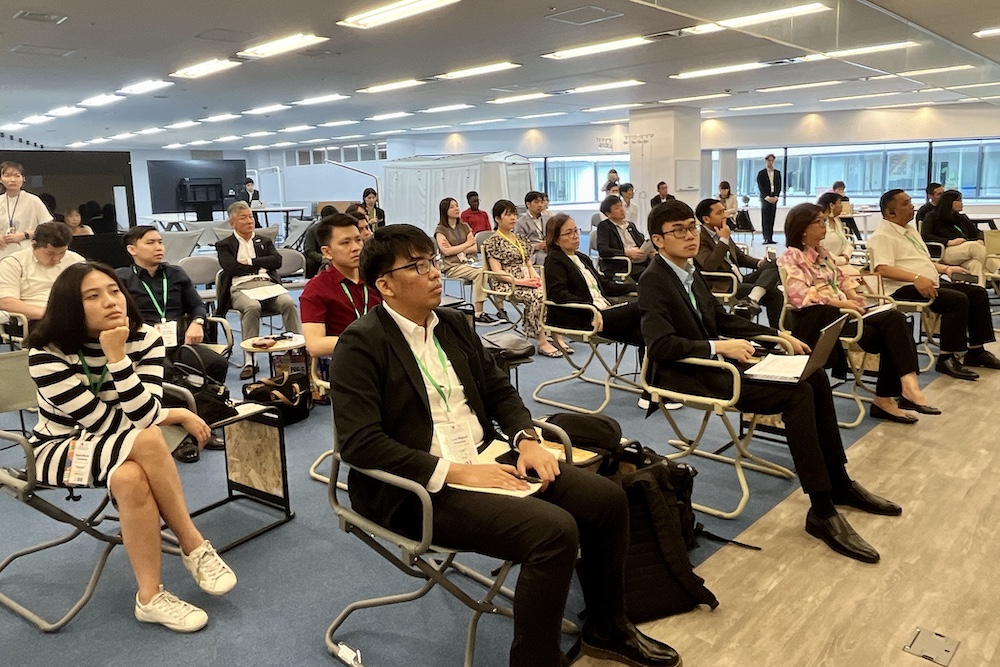
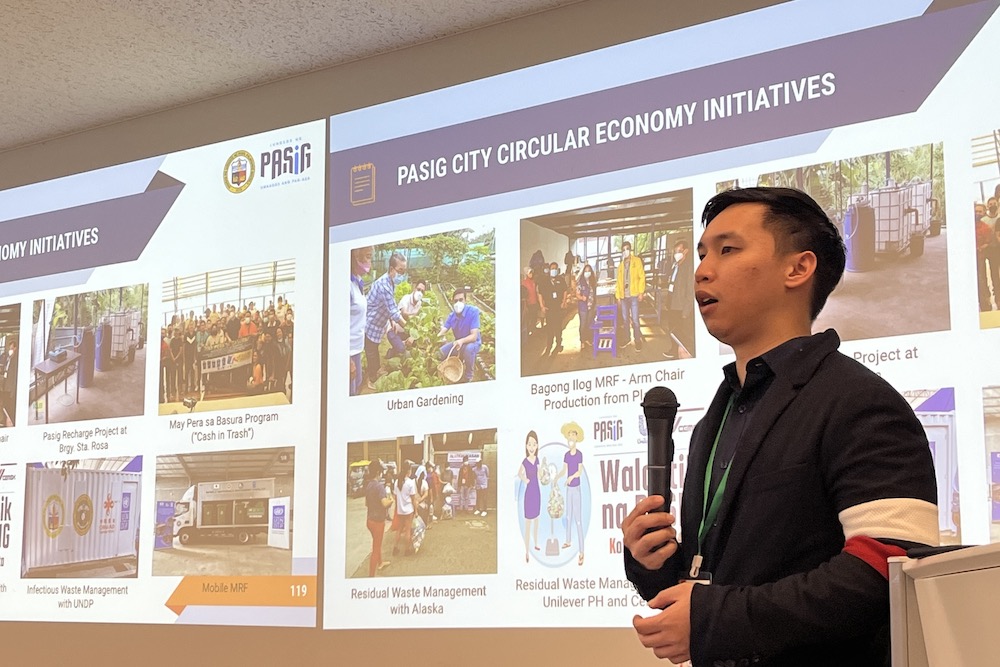
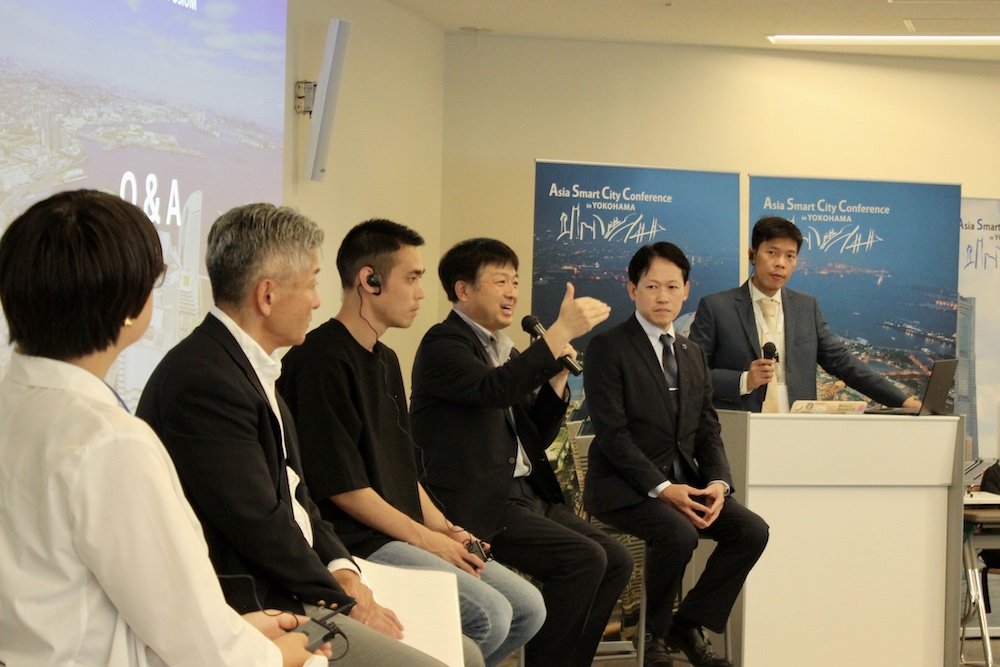
a scene from a q&a session
Part 2: Circular Economy in Cities
Presenter
-Ms. Vanessa Claire B. Vinarao (Climate Change and Environmental Sustainability Department, Quezon City)
-Ms. Fe B. Bass (General Services Department, Quezon City)
-Mr. Ryosuke Arai (RECOTECH Co., Ltd.)
-Mr. Kiyotaka Kurihara (The Yokohama city recycle business cooperative)
The panel discussions focused on “innovative Solutions to Tackle Food Waste and Foster a Circular Food System” and “Role of multi-stakeholder partnerships in pushing for a Circular Economy”
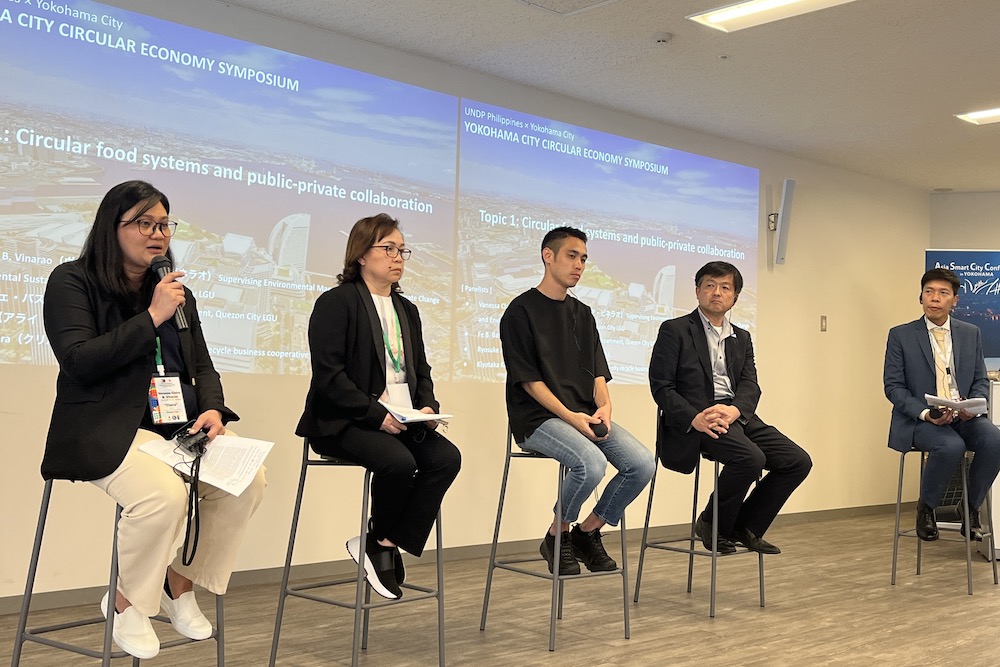
a scene from the panel discussion
The Philippine delegation shared their impressions through the facilities’ tour and their perspectives on the future co-creation between private companies and governments.
The participants were greatly interested in the idea that there should be multiple solutions and ideal designs for the circular economy because each country or city has different cultures, laws, and regulations.
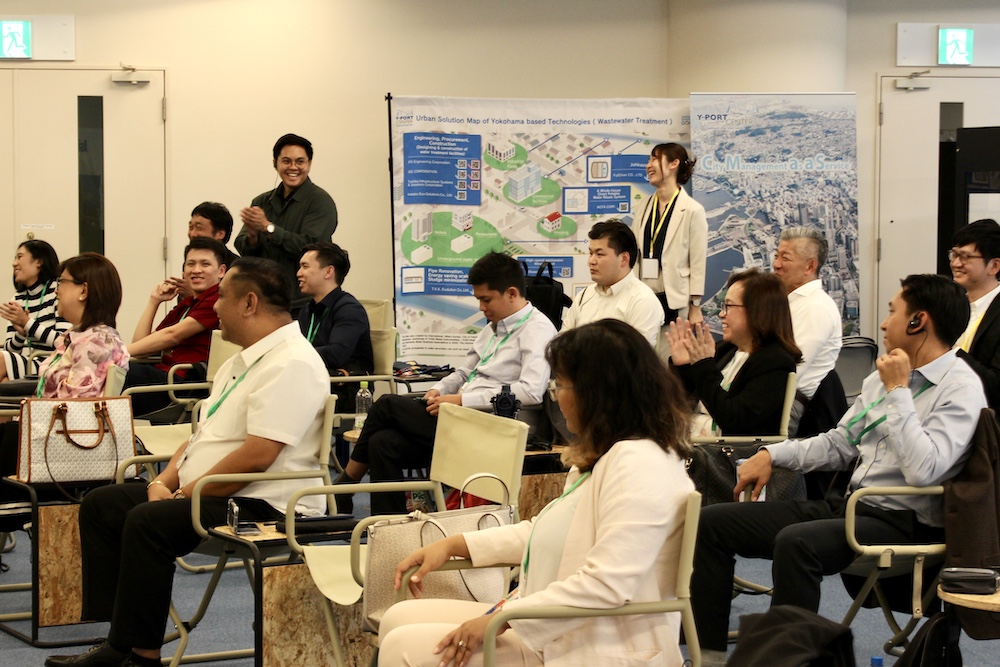
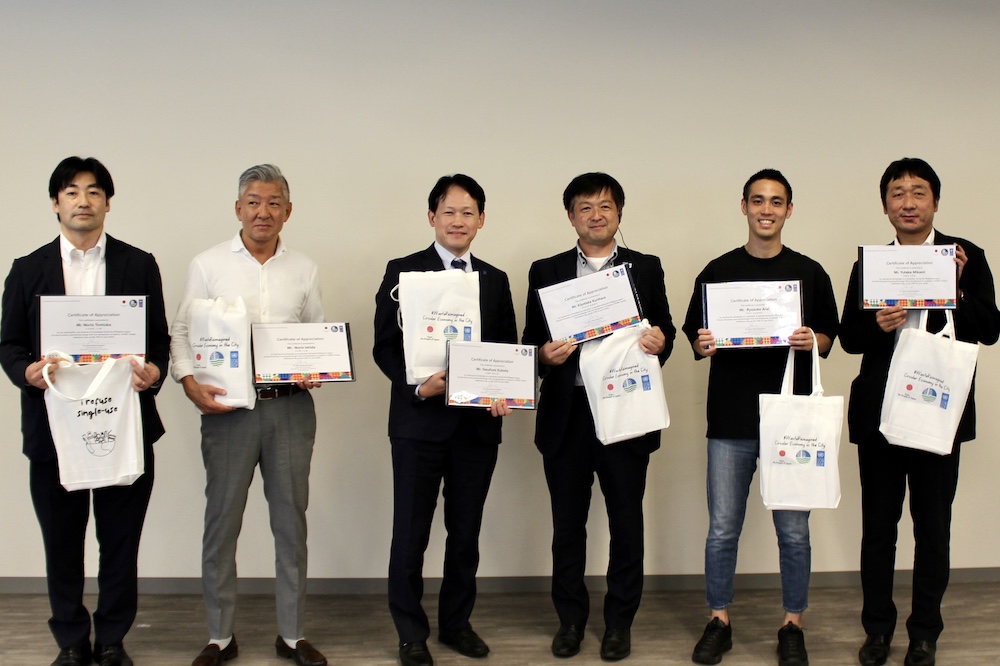
Many thanks go to Japanese presenters!
*check out more about the symposium on Circular Yokohama Instagram . The photos and videos are in highlights “UNDP(国連)ツアー.”
Perceive the material circulation between the Philippines and Yokohama
After the symposium, the participants moved to Kanazawa Ward, where material recycling and resource recycling companies are located.
The first stop was NAKANO Co., Ltd., which recycles clothing and textiles.
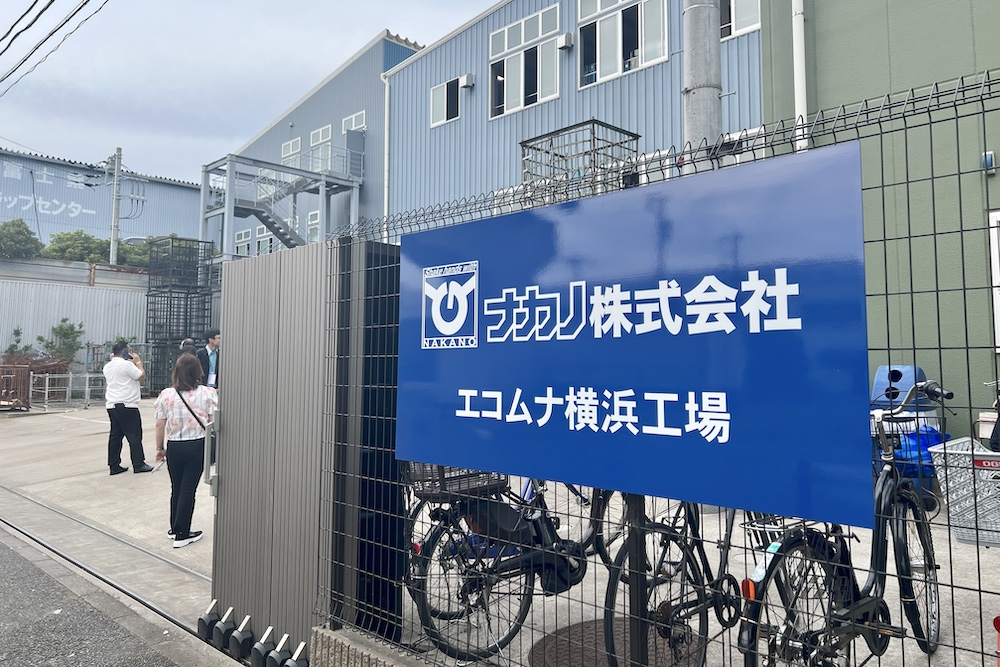
NAKANO Co., Ltd.
Nakano sorts and reprocesses used clothing collected from households in Yokohama. They also have a facility in the northwestern part of the Philippines, Subic.
Yokohama Kanazawa facility is a receiving point for products manufactured in Subic as well as a collecting point for households in Yokohama.
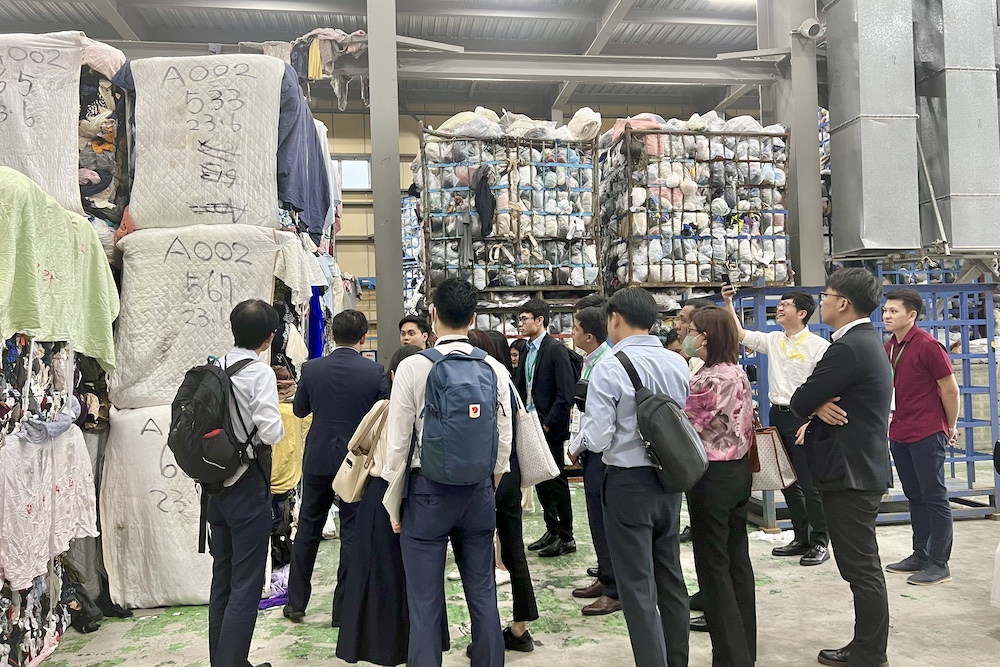
a scene from the facility tour
We encountered a massive amount of used clothes piled up in fresh and new condition, and they were manually sorted out one by one.
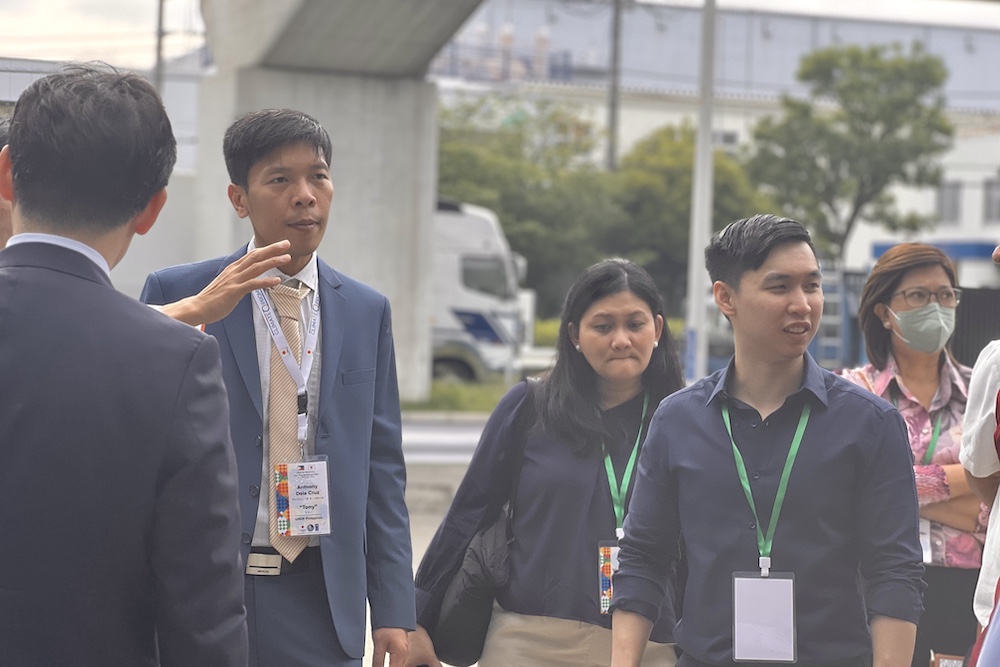
On the other hand, we also saw actual products such as rags and gloves. Those materials were collected in Yokohama and manufactured in the Philippines. We gained a deeper insight of the economic and resource cycle between Japan and the Philippines.
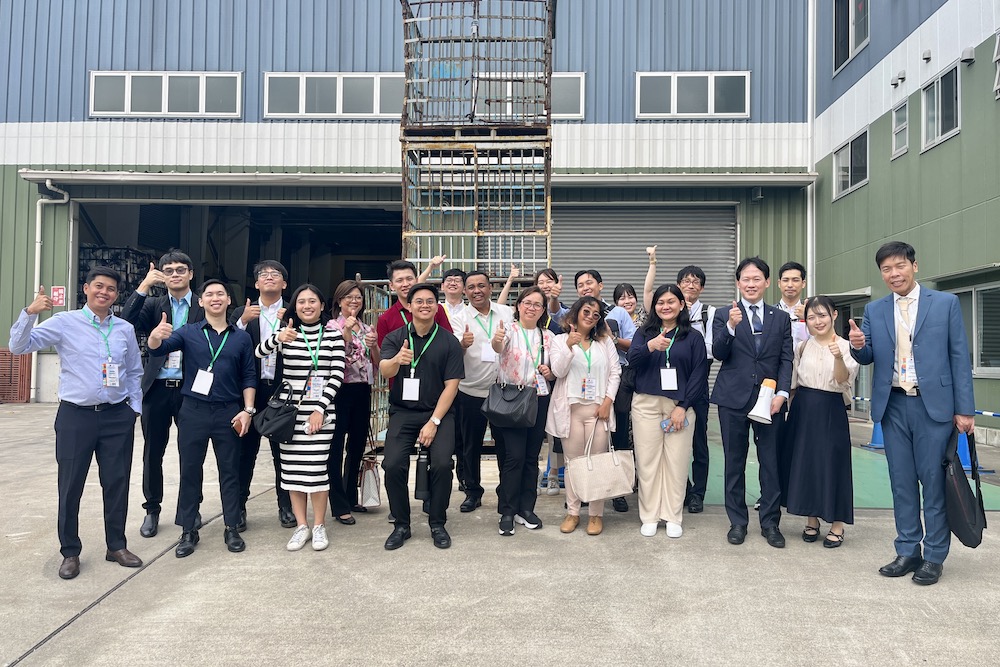
a photo with Mr. Yasufumi, Vice President of Nakano & Co., Ltd.
Learning the current state of resource recycling
The final activity for the second day was GUUN Co., Ltd.
GUUN is a company that collects waste materials, mainly wood and plastic, and recycles them as fuel resources.
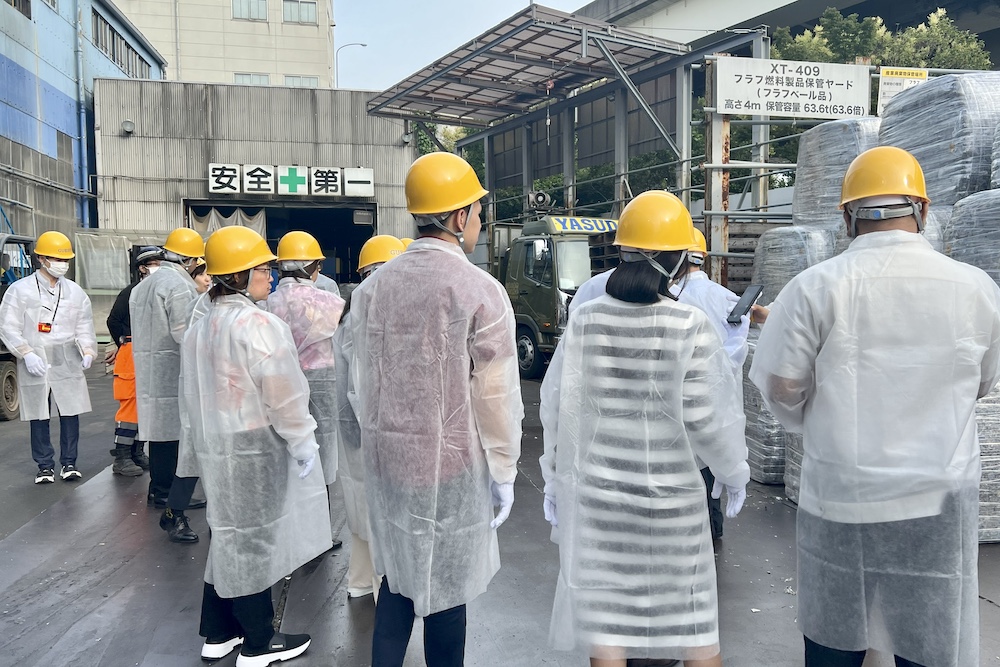
a scene from the GUUN tour
At the plant, waste wood and plastic are sorted and crushed for thermal recycling.
GUUN also has its facility in Cebu Island, Philippines, and is involved in domestic resource recycling in the Philippines, using the technology developed in Japan.
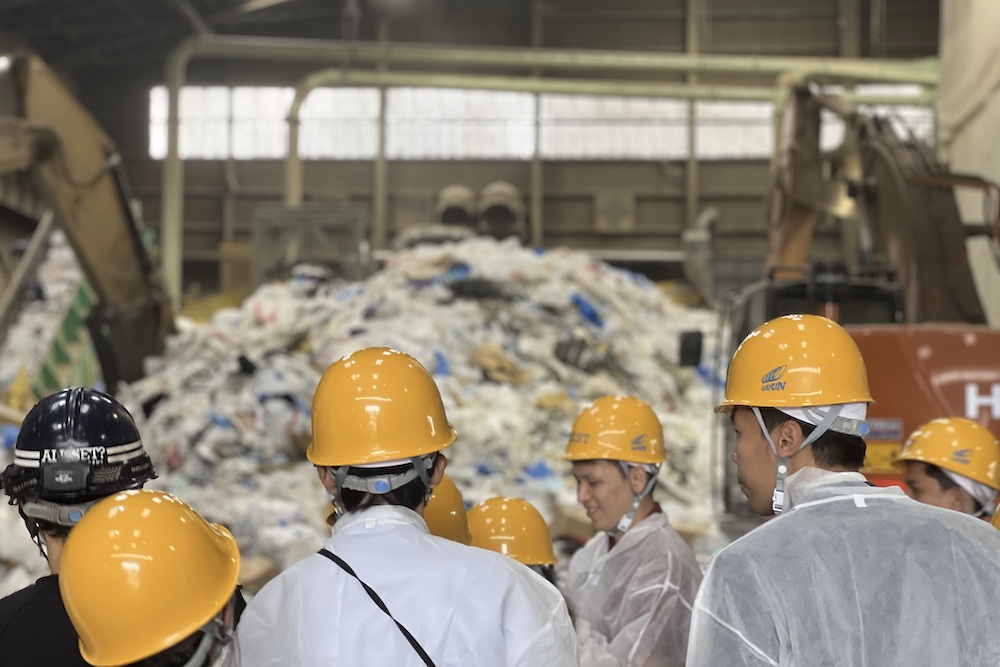
We noticed that careful sorting and processing are indispensable for more environmentally efficient recycling. This is in spite that recycling is already widely known and practiced for a long time.
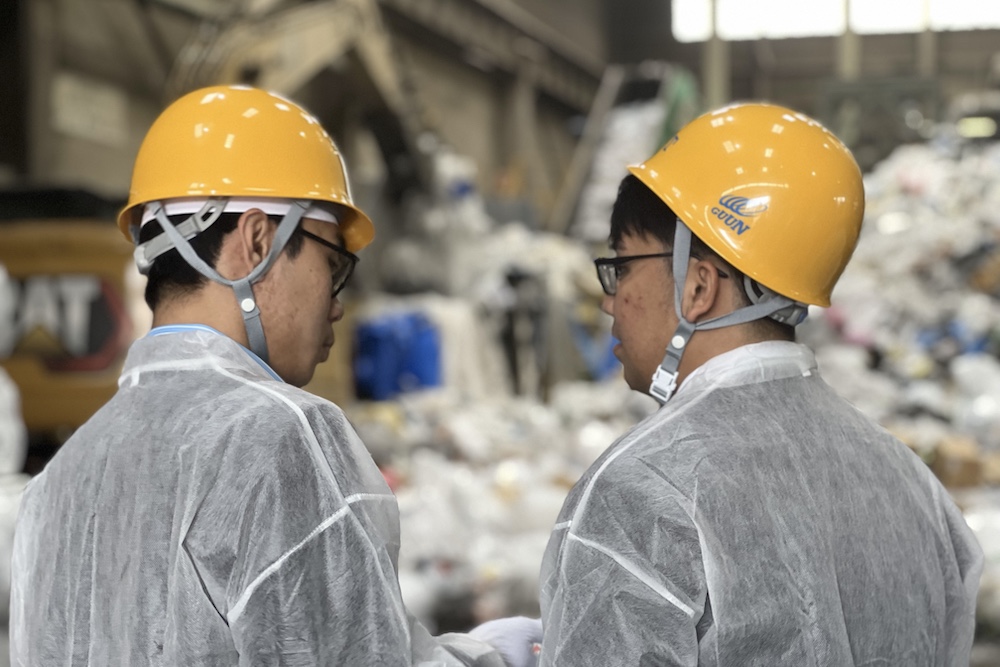
Post script
The two-day tour was remarkable for the Philippine delegates to interact with various sectors, from government to private companies, to individuals. We are very honored to introduce fantastic circular players here in Yokohama!
We hope this opportunity brought valuable experience also to Japanese guests.
Thank you to everyone who has participated in our tour.
In the following article, we will walk you through the latter half of the tour in Tokyo.
【Reference】J-Bio Food Recycling Co. Ltd
【Reference】YOKOHAMA URBAN SOLUTION ALLIANCE
【Reference】UNDP Philippines Delegates’ journey into Japan’s Circular Economy


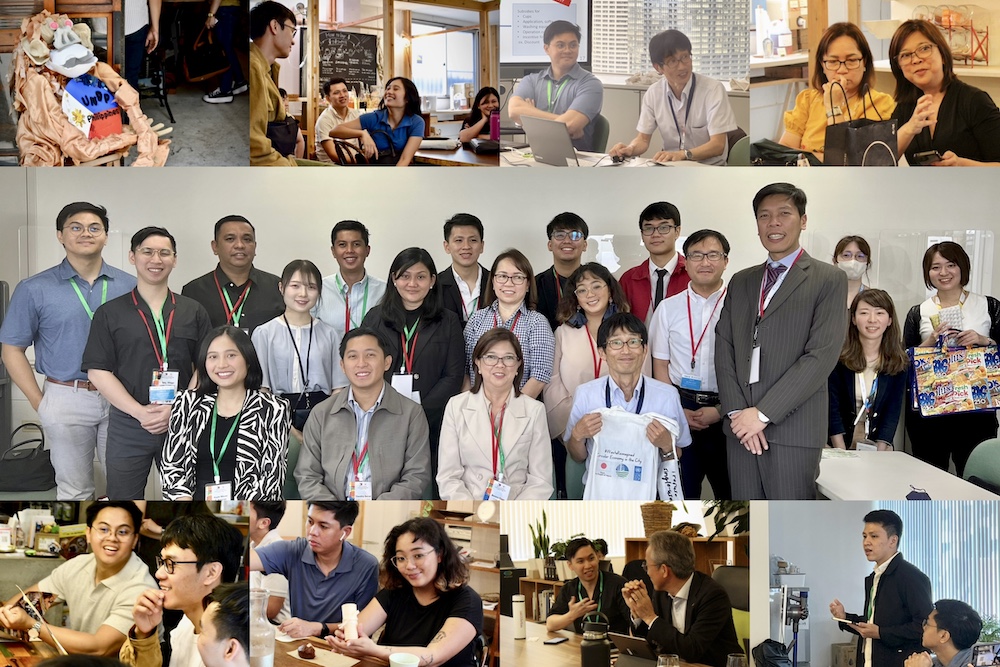
![YOKOHAMA CIRCULAR FASHION GATHERING: Envisioning the future of textile circulation across industries [EVENT REPORT]](https://circular.yokohama/wp-content/uploads/2025/10/YOKOHAMA-CIRCULAR-FASHION-GATHERING-300x200.jpg)
![Sustainable Micro-tourism: A one-day tour of sustainability initiatives in Yokohama [Event Report]](https://circular.yokohama/wp-content/uploads/2025/08/sustainable-microtourism-main-300x200.jpeg)


